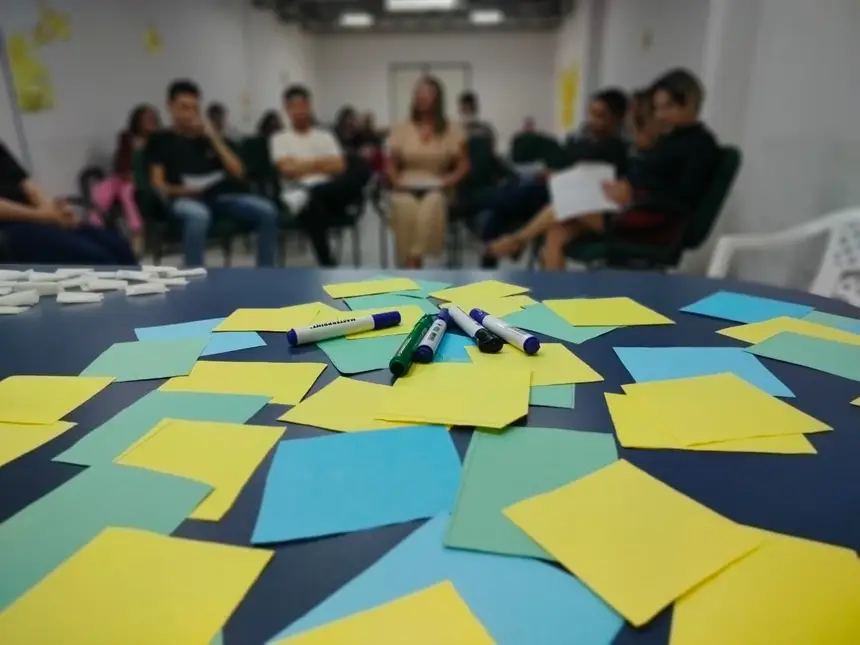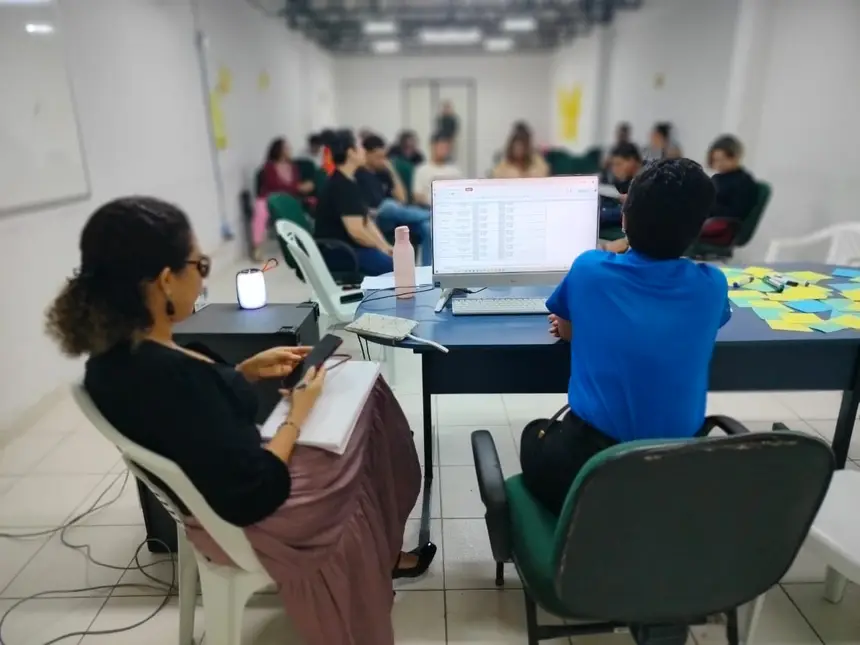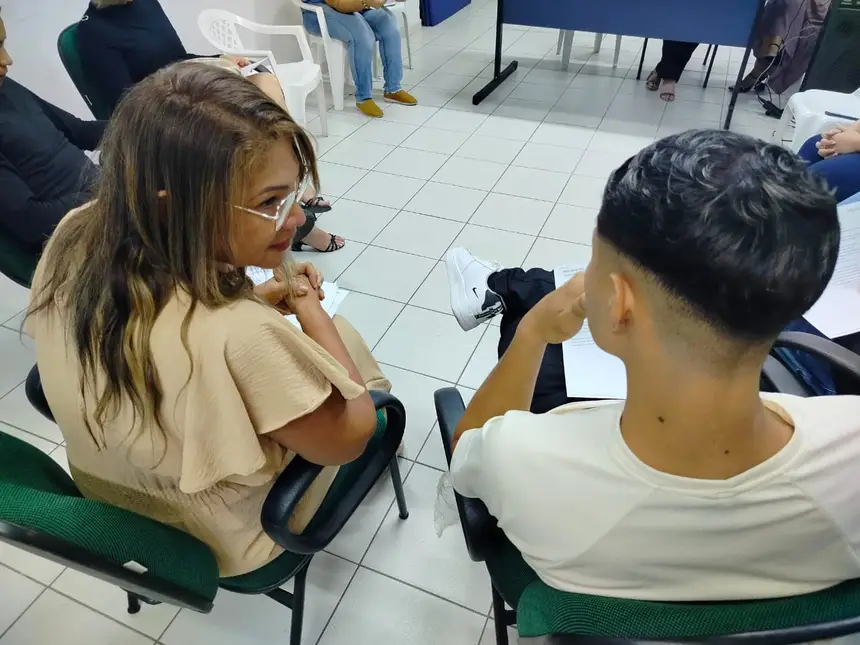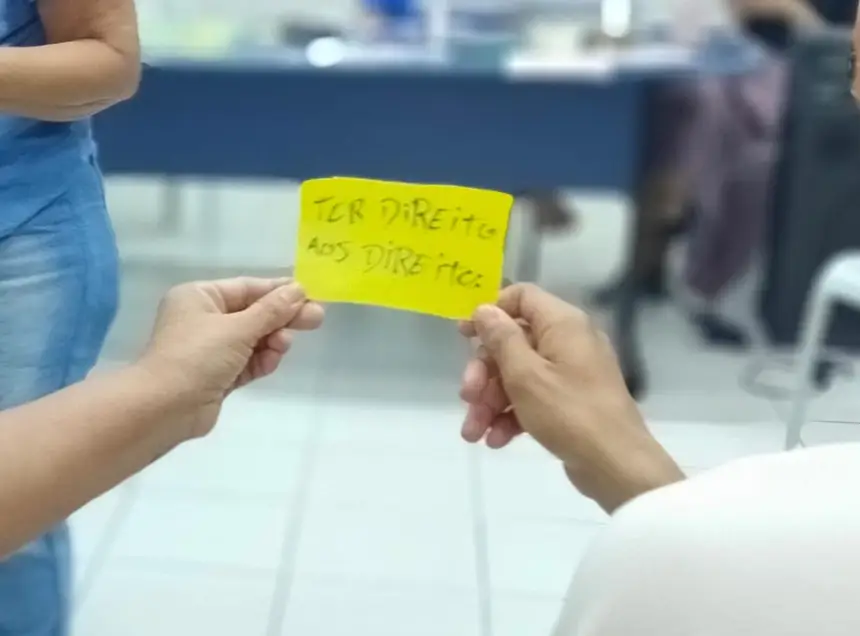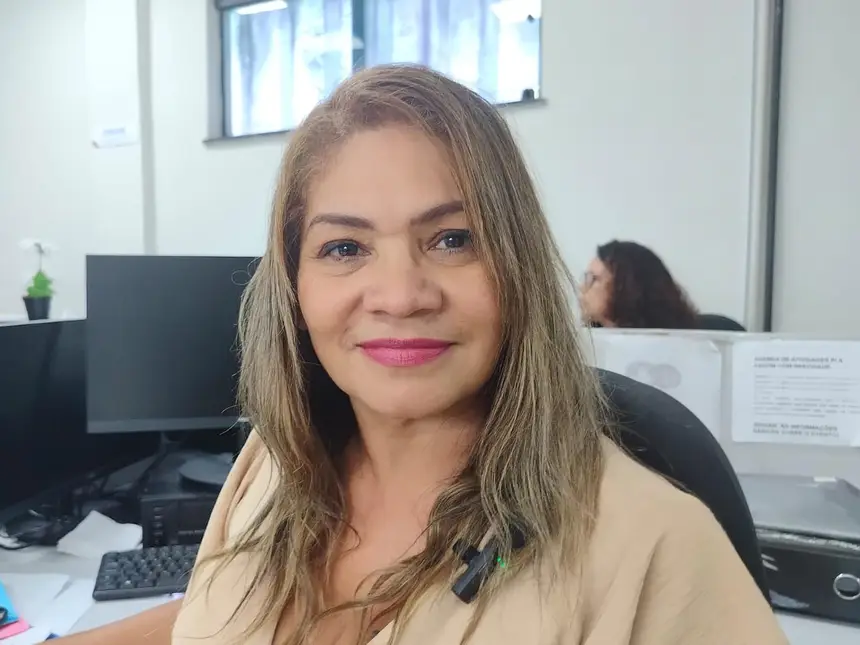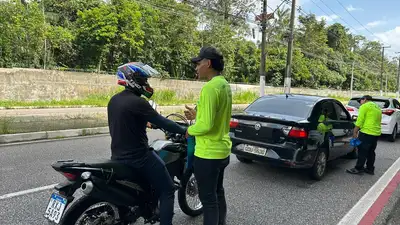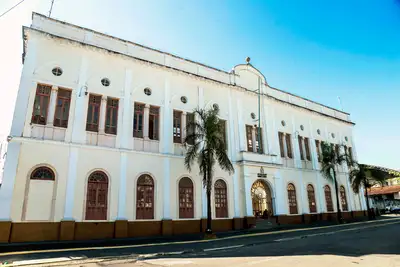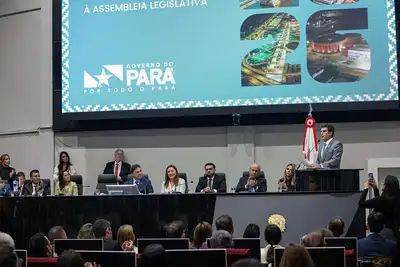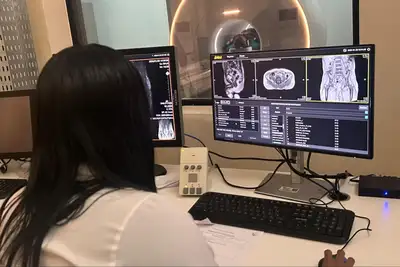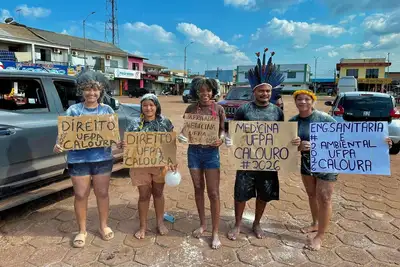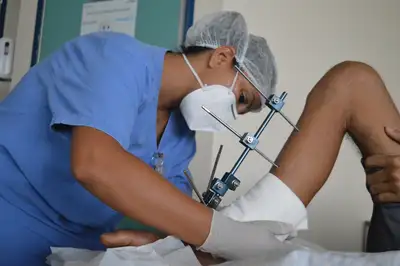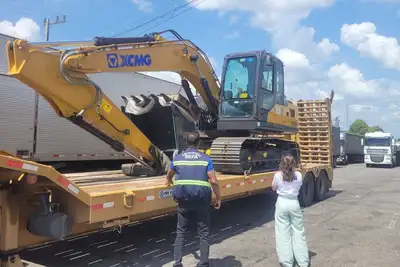Socioeducators contribute to the revision of the Institutional Political Project of Fasepa
Workshop held at the Foundation's headquarters reinforces qualified listening and youth protagonism in the construction of the socio-educational policy guidelines of Pará
The Pará Foundation for Socio-Educational Assistance (Fasepa) held a workshop on the morning of this Tuesday (30) with adolescents serving semi-liberty measures, focusing on the revision and updating of the Institutional Political Project (PPI) of Socio-Educational Assistance. The action took place in the auditorium of the institution's administrative headquarters in Belém and is part of the cycle of activities provided for in Ordinance No. 641/2025.
The initiative marks a fundamental stage in the collective construction process of the new PPI, ensuring space for qualified listening and active participation of the socio-educators. The goal is to incorporate their experiences and suggestions into the formulation of the guidelines that guide socio-educational assistance in the state of Pará.
Youth protagonism in the construction of public policies
According to the social worker from the presidency advisory of Fasepa, Mônica Calandrine, listening to adolescents is essential for strengthening institutional practices. “It is a rich and highly important moment, as it allows them to bring their experiences and perceptions about aspects that can be improved, such as the quality of socio-educational assistance, education, relationships with families, the right to comprehensive health, professionalization, among other axes,” she highlighted.
She emphasized that the direct participation of adolescents gives more legitimacy to the document. “Involving the main actors of this process, the adolescents themselves, strengthens the collective construction of a document that will guide and qualify our work,” Mônica added.
Workshop used Mind Map technique to stimulate dialogue
The activity was conducted by the psychologist from the Socio-Educational Assistance Directorate (DAS), Rosicléa Corecha, using the Mind Map methodology — a tool that allows the organization and expansion of ideas based on keywords. Participants reflected on concepts such as dignity, respect, welcome, diversity, health, education, work, and youth protagonism.
The dynamics resulted in the construction of a visual panel with records of the speeches and observations made by the adolescents themselves, which will serve as a basis for the analysis and consolidation of the proposals that will integrate the new PPI.
According to Rosicléa Corecha, the inclusion of adolescents in this process directly contributes to the qualification of institutional practices. “The PPI constitutes a guiding instrument for practices and guidelines within the scope of socio-educational assistance. The inclusion of adolescents in this process is essential, as it incorporates the perspective of the socio-educators, providing legitimacy, humanization, and greater effectiveness to the actions developed,” she explained.
Working group and next steps
The working group responsible for conducting the workshops is composed of employees from different areas of Fasepa, including social worker Mônica Calandrine; pedagogue Geraldo Barros; social workers Évela Barbosa, Eurides Andrade, and Kátia Porfírio (also coordinator of socio-educational assistance at Fasepa); psychologist Rosicléa Corecha; pedagogue Ellen Cardoso; and communication advisory staff Priscila Mastop.
The cycle of workshops will continue until October 2, 2025, with similar activities being carried out in other Fasepa units, including adolescents in detention and provisional detention measures. The proposal reinforces the institution's commitment to participatory, inclusive practices aimed at the continuous improvement of services provided to youth serving socio-educational measures.
Text: Dani Valente (Ascom Fasepa)


